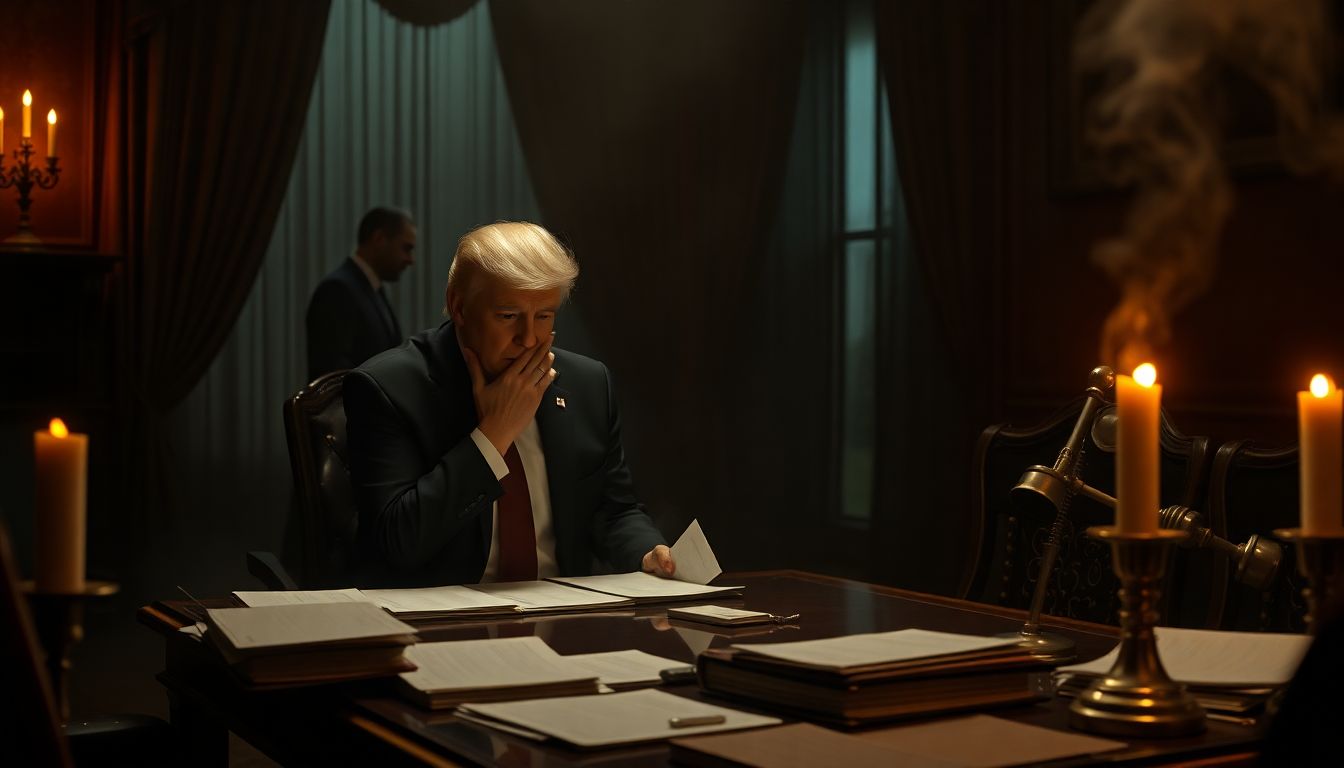Is President Trump Just a Puppet for Something More ?

Is President Trump Just a Puppet? Unraveling the Theories
Was President Trump really calling the shots? Or was someone else pulling the strings? The idea of a "puppet" in politics isn't new. It means a leader who seems controlled by outside forces. This article dives into the different ideas about who, if anyone, might have influenced Trump's decisions. Let's get into it.
Decoding the "Puppet Master" Allegations
People often wonder, was Trump his own man? Or was he a tool for others? We'll look at how this question has been asked and answered. It's important to see different sides of the story.
A. Defining "Puppet" in a Political Arena
A political "puppet" is a leader who looks like they're in charge. But in reality, they're doing what someone else wants. This could be a foreign power, a rich donor, or even a powerful advisor. The puppet leader makes decisions that benefit the hidden controller.
B. Common Accusations Against Trump
Many people have accused Trump of being a puppet. Some say Russia controlled him. Others point to wealthy business people. Still, others think conservative media was the real influence. These accusations raise big questions about who shaped his presidency.
C. Public Perception and Media Portrayal
The media often showed Trump as easily influenced. Political cartoons and news stories painted this picture. Public opinion was split. Some believed he was a strong leader. Others saw him as someone else's tool. How the media presented him played a big role in how people viewed his power.
II. The Russia Connection: A Web of Influence?
Did Russia meddle in the 2016 election? Did Trump have secret ties to Russia? These questions fueled the idea that Russia controlled him.
A. Investigating Russian Interference
The Mueller Report investigated Russian meddling. It found that Russia tried to interfere, but it didn't find enough proof that Trump's campaign worked with Russia directly. Other investigations also explored these claims, leaving many questions unanswered about Russia's true role.
B. Key Figures and Their Alleged Roles
Several people were suspected of being go-betweens. They supposedly connected Trump and Russia. People like Michael Flynn and Paul Manafort faced scrutiny. Their connections to Russia raised eyebrows. The public wondered if they influenced Trump's actions.
C. Impact on US Foreign Policy
Some believe the Russia situation impacted Trump's foreign policy. They point to his friendly comments about Vladimir Putin. Others argue that his policies were tough on Russia. This debate shows how complicated the issue is.
III. The Role of Wealth and Special Interests
Money talks in politics. Did wealthy donors and lobbyists influence Trump? Lets take a look.
A. Campaign Finance and Lobbying
Campaign money can open doors. Lobbyists try to sway politicians. Trump got a lot of money from rich people and corporations. This led some to believe they had his ear. Was he really representing ordinary citizens or just the wealthy?
B. Corporate Influence on Policy
Some policies seemed to favor big business. Tax cuts benefited corporations. Environmental rules were loosened. Critics said Trump was helping his rich friends. Others argued these policies helped the economy.
C. The Swamp or Business as Usual?
Trump promised to "drain the swamp," which meant getting rid of corruption in Washington. Some say he did, but others argue he made it worse. They say he just replaced one set of insiders with another.
IV. Ideological Influences and the Rise of Populism
Trump tapped into a powerful feeling: populism. How did this, and conservative ideas, affect his policies?
A. The Influence of Conservative Media
Fox News and other conservative outlets supported Trump. They pushed his message. Some say they shaped his policies too. They acted like an echo chamber.
B. Populism and Nationalism: A Driving Force
Populism is about appealing to ordinary people. Nationalism puts the country first. These ideas drove Trump's agenda. He promised to bring back jobs. He wanted to build a wall on the border. These promises resonated with many voters.
C. Navigating Ideological Divides
Trump's policies deepened social divides. Some people loved him. Others hated him. His presidency was a time of great division.
V. Evaluating Trump's Decision-Making Process
How did Trump make decisions? Did he listen to others? Or did he just do what he wanted?
A. Trump's Leadership Style: Autocratic or Collaborative?
Trump had a unique leadership style. Some called it autocratic, or one-man rule. Others say he listened to advisors. His style definitely impacted how he made decisions.
B. Key Advisors and Their Influence
People like Steve Bannon and Jared Kushner had Trump's ear. They pushed different ideas. How much influence did they really have? It's hard to say for sure, but there's no doubt they shaped his presidency.
C. Fact vs. Fiction: Separating Truth from Conspiracy
It's important to be critical. Don't believe everything you read online. Look for reliable sources. Think for yourself.
Conclusion
So, was Trump a puppet? It's a complicated question. There's no easy answer. Many people and forces tried to influence him. Whether they succeeded is up for debate. Don't just take my word for it, though. Stay informed. Think critically. Get involved. It's your country, so shape it.
Comments
Post a Comment